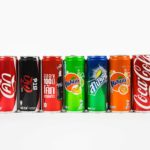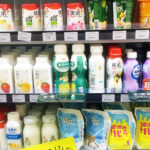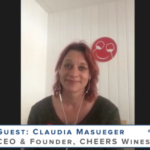The Market of juice in China: Strategy is the Key
With higher income level, better market environment or more work pressure, demand juice and beverage have snowballed. Juice has also become the third largest beverage in China, the market of which grows rapidly, the following water and carbonated beverage.
The Market of Juice in China
Juice’s Categories
Juice can be classified into FC and NFC juice, and the nutrition value and flavor of two types are different. NFC is the abbreviation of Not From Concentrate, indicating that it contains almost the same nutrition and flavor from a fruit. However, marked disadvantages also emerge. The guarantee of the NFC juice’s quality guarantee period is shorter and low temperature is required for storage. Thus, the price for juice is higher due to higher storage cost. One bottle of 300 ml juice may cost 15-16 RMB in China. In comparison, FC juice is the concentrated juice, requiring normal temperature and are rather at a lower cost, with more additives and water, reducing the nutrition value in the juice.
Market Player’s Strategy: Juice in China
 For NFC and FC juice, market players are competing for consumers. The leading local market players in NFC juice are Lingduguofang and Senmei, which have burgeoned in recent years. NFC juice line in Lingduguofang was founded in 2011 while it doubled within less than one year. With sales in only 15 cities in 2012, Lingduguofang had upgraded his selling points and in 2013, he has sold his juice over 30 cities in China and is actually over 40 cities. Moreover, the sales also increased by 20% every year. Although Senmei “marched” into the juice market not early enough, it has great potential. Directing at the high-level group, Senmei has entered about 1000 high-end supermarkets in first-tier cities including Shanghai, Hong Kong, and Beijing. Besides, it plans to cooperate with coffee chain shops, such as Starbucks and Costa Coffee. In FC juice, Huiyuan and Weiquan are the leading players, one for the cold storage market and the other one for a normal supermarket.
For NFC and FC juice, market players are competing for consumers. The leading local market players in NFC juice are Lingduguofang and Senmei, which have burgeoned in recent years. NFC juice line in Lingduguofang was founded in 2011 while it doubled within less than one year. With sales in only 15 cities in 2012, Lingduguofang had upgraded his selling points and in 2013, he has sold his juice over 30 cities in China and is actually over 40 cities. Moreover, the sales also increased by 20% every year. Although Senmei “marched” into the juice market not early enough, it has great potential. Directing at the high-level group, Senmei has entered about 1000 high-end supermarkets in first-tier cities including Shanghai, Hong Kong, and Beijing. Besides, it plans to cooperate with coffee chain shops, such as Starbucks and Costa Coffee. In FC juice, Huiyuan and Weiquan are the leading players, one for the cold storage market and the other one for a normal supermarket.
The leading market players carry out various strategies to attract consumers. Quality and flavor affect consumers’ feedback while strategy affects their choice. Overall the marketing strategies, celebrity advertisement is the most common one. With a swarm of fans and good appearance, celebrities have great potential to attract consumers from all ages. The fans may buy the juice just for the taste but other consumers may be convinced by the celebrities’ credit and publicity. For other companies like Weiquan, they come up with unique and novel ideas to attract people who are a passer-by. Weiquan has made elaborations on the packaging, presenting a sentence on the bottle which suggest that the bottles are talking directly to the consumers. Some companies also gain achievement due to their targeted consumers. For example, Tongyi aims at women consumers, who provide the most support for juice market. The orange juice they produced appeared on the market with the slogan of “making women more beautiful” and gained a lot of popularity.
Public’s preference
Companies are inclined to gain profits if they cater to consumers. For consumers, the situation varies on how they know the brand, where they make a purchase and which one they choose and prefer. According to the survey, about 75% of the consumers know about the brand through advertisement and 58% through their try. Over a half of the consumers make the purchase at the supermarkets or convenience stores. But now more and more people buy juice from online supermarkets or high-end chain stores, such as Starbucks or Costa Coffee. Besides, most of them choose juice out of flavors and packages and the choice changes with their mood and weather. Very few of the consumers choose to buy juice and beverage in bulk for storage. Moreover, women and young adults are the two groups which have the tendency of buying high-priced juice, young adults have indeed, the ability to afford high-priced juice. Besides, women are more likely to be attracted by colorful packages.
Gradually replacing carbonated beverage, juice market continues to grow. As the fastest growing industry in China, juice market has to catch O2O trend and focus on people’s growing emphasis on health.
To know more about China’s market, contact Daxue Consulting at dx@daxueconsulting.com
See also:
Follow us on our Social Media





![[Podcast] China Paradigm 41: How to start a trendy wine chain in China](../wp-content/uploads/2019/05/Podcast-wine-chain-China-150x150.jpg)




![[Podcast] China Paradigm #27: How to succeed in China’s tea market while starting from scratch](../wp-content/uploads/2019/04/China-marketing-podcast-27-150x150.jpg)




